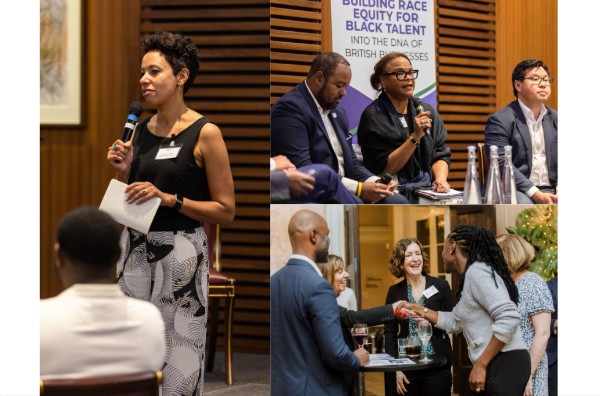
As corporations and businesses mark Black History Month and a wider national conversation around race equity and DEI initiatives continues, important research is being conducted on the correlations between access to professional careers for low socio-economic background and black heritage individuals.
In March 2025, UCL researchers at the Centre for Education Policy & Equalising Opportunities specifically investigated the connection between working class backgrounds and ethnic minority heritage in relation to access to professional careers. The research, ‘Inequalities in Access to Professional Occupations’, has found that:
UCL's latest findings support BTC research published in 2024 with Bain & Company. Why We Need to Fix the Broken Pipeline revealed that black graduates are twice as likely to be rejected for jobs at top businesses despite comprising 8% of the UK university population and 4% at the top 20 universities. Our research exposes the persistence of inequity in sectors that may think they have solved the recruitment challenge. The promise of meritocracy in Britain’s top professions is starkly challenged when evidence is combined. When set alongside a recent study from UCL, the picture becomes more complex: even when class background is accounted for, black applicants remain significantly less likely to receive job offers than their white counterparts. Together, these studies dismantle the narrative that the underrepresentation of black professionals is a ‘pipeline problem’ and instead point to systemic racial bias embedded within recruitment and selection processes themselves. The second phase of UCL's important work is beginning this month.
In the race for professional careers, timing of applications is proving to be a hidden barrier to social mobility. The research found that after controlling for variables such as qualifications, university attended, subject studied and personal characteristics, working-class applicants were less likely to receive offers because they tend to apply later. The date of application accounts for 11% of the offer gap in sectors including accounting and professional services. Applying just one month earlier increased a candidate’s chances by 6%; a significant boost in a competitive market.
Data from the Institute of Student Employers shows that nearly 40% of graduate schemes closed between October and December in the 2023–24 cycle. By early October, some firms had already received 30% of applications and made half of their job offers for roles starting the following September. With application volumes surging, partly due to AI-assisted submissions and the removal of academic filters, employers are closing campaigns earlier, inadvertently disadvantageing those who apply later
.
The problem extends beyond graduate schemes. Internships, often a gateway to full-time roles, show similar patterns. Students from state schools are underrepresented in internship applications, while those from private schools are overrepresented. Yet when state school students do apply, they perform just as well. The challenge lies not in capability but in readiness - knowing when and how to apply.
According to the research, this readiness gap is shaped by multiple factors: lack of awareness about deadlines, lower confidence, and competing priorities such as part-time work. The result is a treadmill of work experience opportunities that starts earlier and moves faster than many disadvantaged students can keep up with. As one student put it, “having the right information makes it easier to be lucky.”
To level the playing field, the report recommends a coordinated effort between employers and universities. Employers should clearly communicate recruitment timelines and consider extending eligibility for internships and spring weeks. Universities must embed career awareness into the curriculum early and support students from underrepresented backgrounds with tailored guidance and confidence-building resources.
Ultimately, improving application readiness is a practical and impactful way to boost social mobility. It’s not just about who applies but when they apply; in today’s competitive landscape the early bird doesn’t just catch the worm: it catches the job.
Further Reading
Written by




